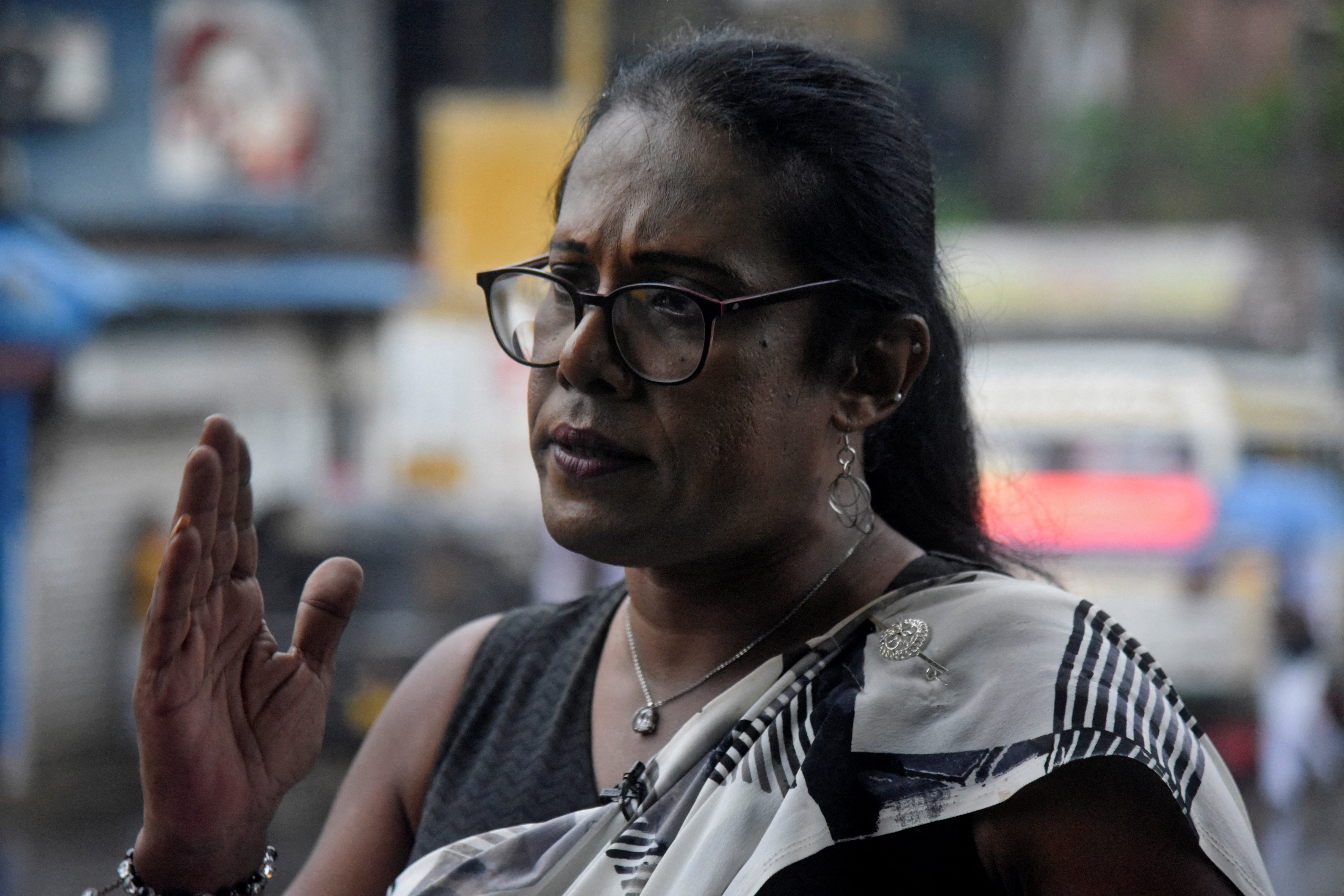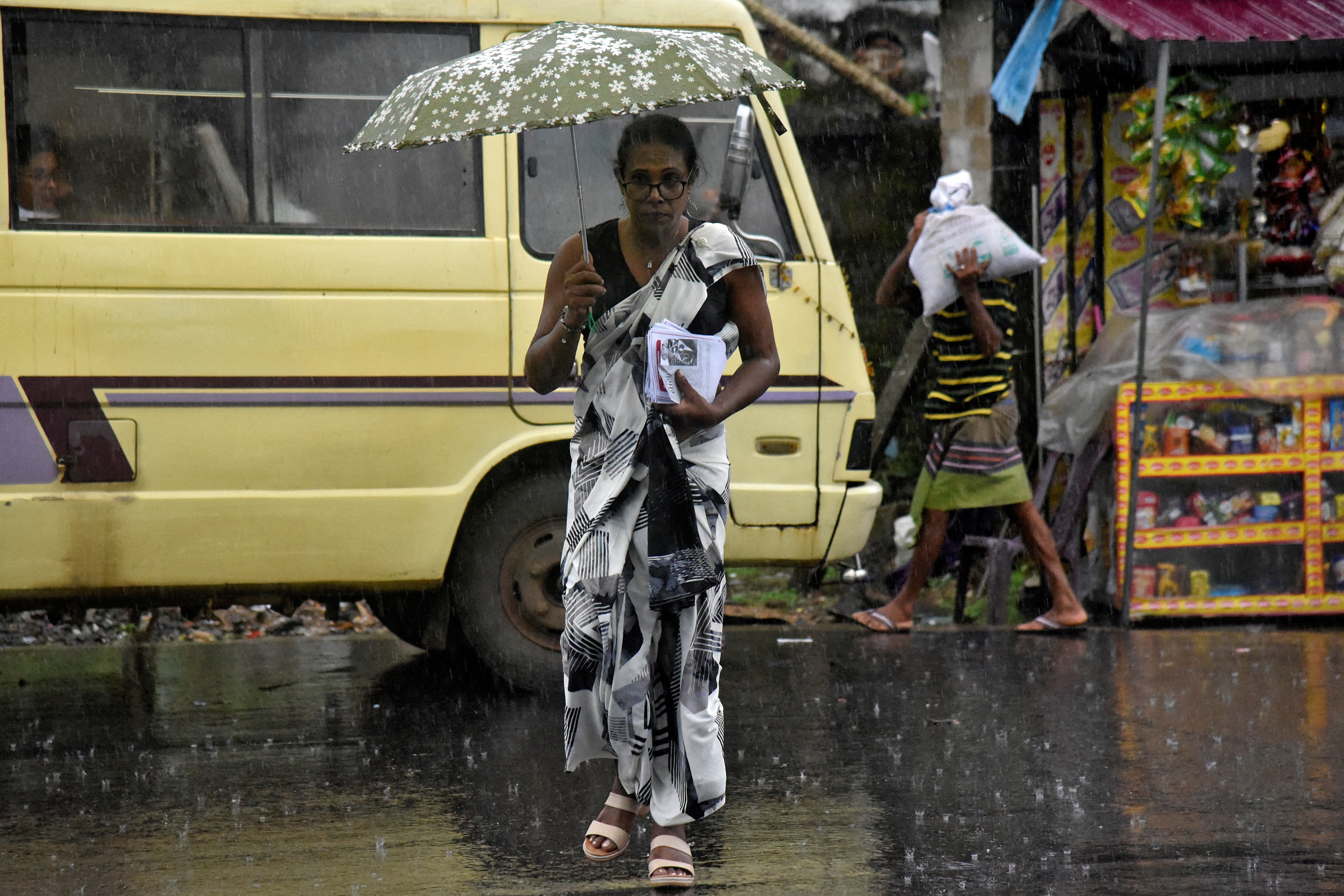Who is Sri Lanka’s first transgender parliamentary candidate?
Chanu Nimesha, 49, is determined to make politics more inclusive

Sri Lanka’s first openly transgender parliamentary candidate aims to foster a more inclusive political culture.
Chanu Nimesha, 49, a member of the Socialist Party of Sri Lanka, is contesting from the Kegalle constituency and is focusing her campaign on social justice issues.
Transgender people, about one per cent of the country’s population, face social rejection and lack political representation which Ms Nimesha, 49, is seeking to change.
“I’m not concerned about winning or losing,” she said in an interview with Reuters. “But it’s important for me to be present in this space, to be seen, to inspire others like me. I want to help everyone, not just my community.”
Ms Nimesha is one of about 8,000 candidates in Thursday’s parliamentary election.
The snap election was called by new president Anura Kumara Dissanayake to bolster parliamentary support for his policies amid Sri Lanka’s severe financial crisis.
The crisis, caused by high debt, economic mismanagement and lost tourism revenue due to the Covid pandemic, triggered street protests that felled former president Gotabaya Rajapaksa in 2022.
In part with the help of a $2.9bn IMF bailout, the country has begun a slow recovery, though poverty still affects a quarter of the population.
Ms Nimesha claims to have participated in the protests that forced Mr Rajapaksa to resign as the president and flee the country.
To support her activism and campaign, Ms Nimesha works as a quantity surveyor at a nearby construction site. She is an amateur actress, composes music and has written a book scheduled for release in the coming two months.

Mr Dissanayake dissolved the parliament on 24 September and called an early general election, seeking broader support for his reformist agenda as his party held only three seats in the outgoing legislature.
Nearly 17.1 million Sri Lankans are registered to vote to elect 225 parliamentarians, 196 directly and 29 through a proportional representation system.
The results are expected by Friday. The new parliament will convene on 21 November, when Mr Dissanayake is slated to present his policy agenda.
Ms Nimesha says people “need to see the humanity in each other and accept each other” to “build a society where we all belong”.
Born in Galle in southern Sri Lanka, she lost her father to political violence when she was 14. It marked a turning point in her life, she says, eventually leading her to relocate to Colombo in search of new beginnings and opportunities.
As she embraced her identity and pursued a path as an activist, her relationship with her conservative family grew strained. “I understand their decision to cut ties with me. This is why I’m so passionate about the need for inclusiveness,” she told Reuters.
Nelson Samarasinghe, fellow candidate from the Socialist Party of Sri Lanka, told EFE news agency: “No one has given a chance to a transgender candidate before. We are happy that Nimesha has joined us.”
Ms Nimesha describes her candidature as “a historical change”.
“The first step is always difficult, and it is easy to continue that journey,” she says. She hopes that more people from the LGBTQ+ community will contest in future elections.
Join our commenting forum
Join thought-provoking conversations, follow other Independent readers and see their replies
Comments
Bookmark popover
Removed from bookmarks